Civil Liberties, Human Rights, Military Tribunal, Targeting Muslims, Torture, Truth to Power, War Resister
Podcast: Play in new window | Download
Updates:
—
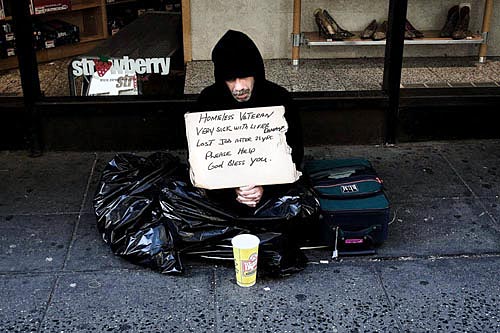
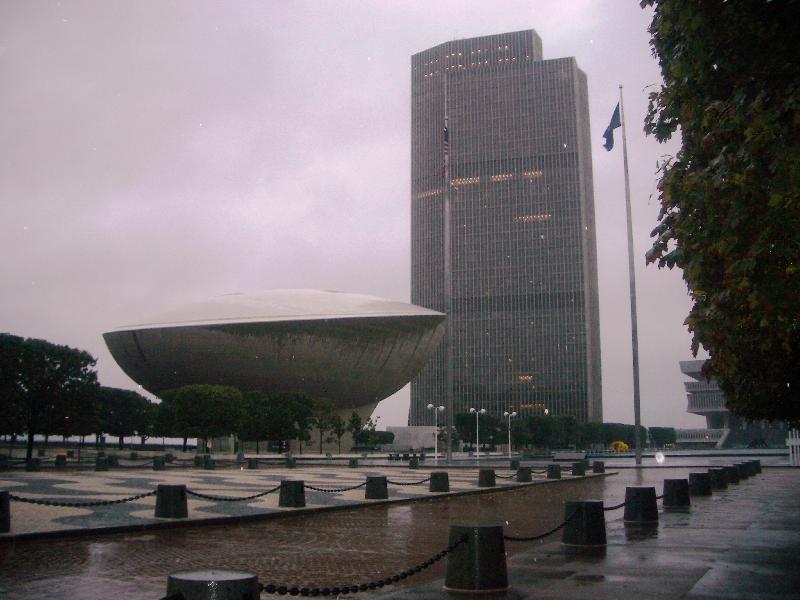
New York City Rent Laws Set To Expire June 15, 2011
Rent and tenant protections for half of all New York City renter households plus thousands more are set to expire on June 15, 2011. These laws have been the foundation for affordable rental housing for middle-class and low-income New Yorkers. If the rent laws are not renewed, it could lead to unprecedented evictions and homelessness could spiral even further out of control. It’s explained in the above linked article by Patrick Markee Senior Policy Analyst at the Coalition for the Homeless, titled Tell Albany: Renew and Strengthen Rent Laws.
Patrick Markee:
- Two out of three households in New York City are renters. Half of all New York City renters are protected by rent and eviction protection laws that go back 60 years to the New Deal era.
- Right now the stakes are as high as they could be and the political environment is as bad as it can be.
- We have a governor who’s been strongly supported financially by the real estate industry.
- Fortunately we have a state assembly there that is strongly pro-tenant. Half of all New Yorkers are rent stabilized apartments which means rent increases are regulated each year.
- The fundamental protection for tenants is they can’t be evicted except for just cause.
- Those protections have been weakened by vacancy destabilization. Because of that we’ve lost 300 thousand rent stabilized apartments over the last decade and a half.
- Right now we have 39 thousand people including 16 thousand children bedding down in the municipal shelter system.
- Just this past month we’ve reached the highest census in the shelter system since the city has been keeping records. Forty percent more people are cycling through the shelter system than when (mayor) Bloomberg took office in 2002
- We’ve had a perfect storm, loss of affordable rental housing across the country, due to Bush Administration cut backs, at the same time, we get the economic recession, and unemployment, add on top of that the foreclosure crisis. 3 out of 4 homeless people are families with kids.
- New Yorkers have a state constitutional right to shelter.
- Contact Governor Cuomo, contact your state legislator.
Guest – Patrick Markee, Senior Policy Analyst at the Coalition for the Homeless and writer of many of the fine articles on the Coalition For the Homeless website.
———-
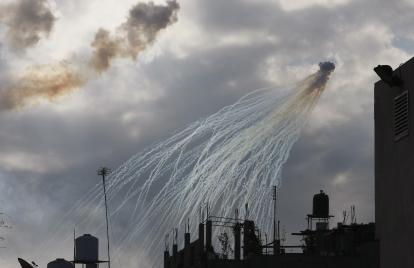
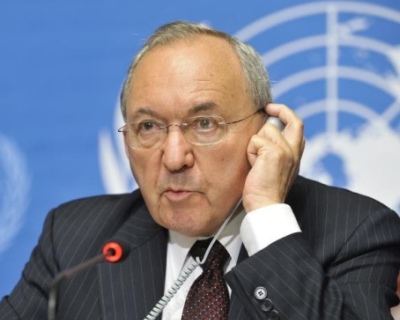
The Goldstone Report Now Belongs to the World
Lead author of The Goldstone Report, detailing the 2008-2009 Israeli assault on Gaza has changed his position on the issue of targeting civilians. In an editorial by the Washington Post, Judge Richard Goldstone said, “Civilians were not intentionally targeted [by Israel] as a matter of policy.” And then Israel has called on the United Nations to retract the report on Operation Cast Lead, the war that led to the death of about 1,400 Palestinians, including hundreds of civilians, and 13 Israelis. Earlier this year, Law and Disorder talked with co-editors of the book titled, The Goldstone Report: The Legacy of the Landmark Investigation of the Gaza Conflict.
Phil Weiss:
- Our book came out 2 years after the Gaza conflict and people said why now, who cares about this? Now we see why.
- This statement by him (Judge Goldstone) was immediately seized upon as a disavowal of the report by many supporters of Israel.
- Prime Minister Netanyahu of Israel immediately called on the UN to withdraw the report.
- The US State Department came out and said this just shows there were no war crimes committed during the Gaza conflict.
- What remains in the Goldstone Report? Geneva Convention: Principle of Distinction and Disproportional Attack
- Other important crimes noted in the report: using white phosphorus, targeting infrastructure, destroying a water treatment facility, destroying a flour mill, destroying food production.
- Even you have a military target, you have to attack that proportionately. One Israeli commander said, we don’t want a hair of our soldiers to fall here.
- This (Gaza) is the size of the Bronx and Queens put together
- The central case that Goldstone based his reconsideration was one of the most horrific cases during the war.
- That took place on January 4, 2009 in a village outside of Gaza City.
- The Israelis were trying to secure parts of Gaza City from the east. They seized this area as a strategic base. They had herded 120 members of an extended family into one house. They had forced them to stay there for a couple of days.
- In the midst of this operation, on that morning, helicopter gun ships came and shelled that house, killing 29 people. In the report Goldstone offered this as another case of targeting civilians.
- I would say “because” this report came out, Israel has produced evidence that the helicopter gunship guys misread drone images. Showing men carrying firewood back to this house as being men carrying rocket launchers.
- Goldstone is saying, I accept the Israeli version here, I think that it was out of negligence or a mistake.
- This reconsideration has got more attention than the whole report.
- This fall the UN General Assembly could vote to establish to make Palestine, a Palestinian state.
Guest – Philip Weiss, founder of the blog Mondoweiss, longtime journalist and regular contributor to the Nation and a fellow at the Nation Institute Philip is the author of two books a political novel, Cock-A-Doodle-Doo, and American Taboo, an investigative account of a 1976 murder in the Peace Corps in the Kingdom of Tonga. Weiss is one of the editors of The Goldstone Report: The Legacy of the Landmark Investigation of the Gaza Conflict.
——————————–
CIA Sponsored Terror, Civil Liberties, Criminalizing Dissent, Habeas Corpus, Human Rights, Prosecution of the Bush Administration, Surveillance, Targeting Muslims, Torture, Truth to Power
Podcast: Play in new window | Download
Updates:
——
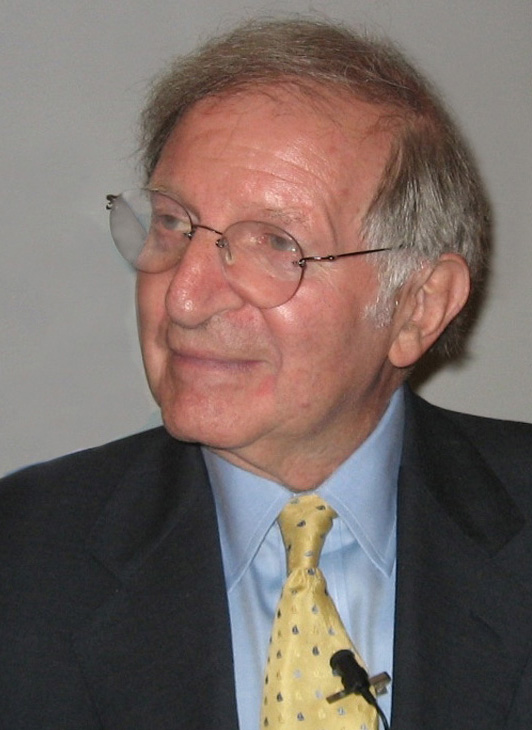
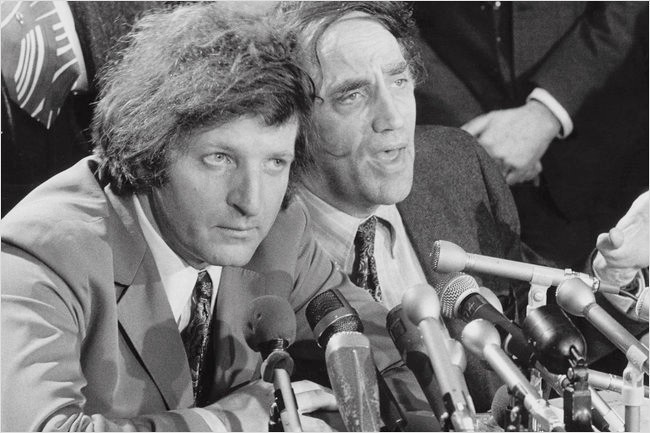
In Memory of Attorney Leonard Weinglass
Hosts remember one of the great civil rights attorneys, Leonard Weinglass from his early years as a lawyer in the Air Force to his big cases. Michael Smith shares a great anecdote. Len vigorously defended a black soldier and upset the Air Force brass. They sent him to Iceland for 2 years. Much later in the late fifties, he moved to Newark, NJ, set up a one man office and represented black people in police abuse cases.
The remarkable and heroic progressive lawyer Len Weinglass died on March 23. Among his cases were the Chicago 8, the Ellsberg case and the Cuban 5. He was our close comrade and will be missed by his friends and all those seeking a better world. – Michael Ratner.
——–
A Poem for Len Weinglass by Linda Backiel
Almost Ready
“I have everything almost ready for the spring,”
you said. Brush cut, brambles cleared, new trees
planted. A lop-sided smile flit across your silver
stubble beard, a late winter field momentarily lit
by a break in a fleet of migrating clouds.
click for more
——–
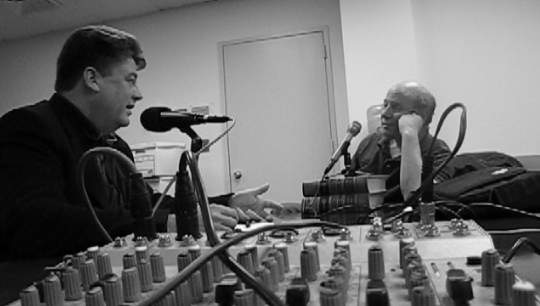
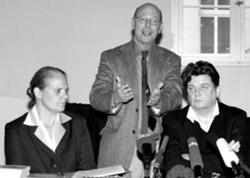
Universal Jurisdiction: Attorney Wolfgang Kaleck
Co-host Michael Ratner interviews attorney Wolfgang Kaleck, German civil rights attorney and General Secretary for the European Center for Constitutional and Human Rights. They discuss the effectiveness of Universal Jurisdiction cases. The cases that helped international human rights prosecutions. Specifically the cases in Argentina against corporations that profited from dictatorships and human rights abuses and how Argentina can be used as a model to bring cases against other powerful leaders or corporations. Optimism overcomes cynicism, Wolfgang says its not easy, it’s work bringing cases against the powerful of the world.
Attorney Wolfgang Kaleck:
- I have the privilege to work on behalf of Germans and Argentinian victims of the Dirty War between 1976 and 1983 in Argentina.
- The Argentinian cases and the Chilean cases were the most important phase in universal jurisdiction.
- We filed cases in Germany, Italy and France.
- The idea to file Argentinian and Chilean cases in European courts was not to try Argentinians and Chileans in Europe but to impose accountability in Chile and Argentina.
- That’s what people call the Pinochet Effect.
- In 2005 and 2006 when the amnesty laws were abolished. If you go to Buenos Aries now you will observe military junta tribes from Monday to Friday and you will police officers, military leaders, torturers, guards.
- At this point, special prosecutors and parts of the civil society are demanding an investigation and prosecution into crimes committed by corporations who aided and abetted the dictatorship, or who profited from the dictatorship.
- The history in Argentina, 30 thousand people disappeared, 100 thousand were tortured.
- The human rights movement in Argentina was so strong, that they maintained a certain presence, a certain public attention.
- For us, Argentina is like the blue print. They inspired the human rights movement not only in Europe
- I filed a case at Mercy Dispense because in Buenos Aires, 15 trade unionists were disappeared. We filed the criminal case in Germany against a German-Argentinian manager who had duel citizenship which allowed us to bring the case in Germany. Then we filed a case in the US, an alien tort claims which is still pending. We filed a case in Argentina which is still pending.
- One line is to blame the torturers and the torturer leaders, we want to talk about why these human rights violations have been committed. Why the Argentinian military took the decision to oppress their populations and our explanation is that they wanted to install a political and economic system which needed the extermination of the trade unionists.
- Actually to demand accountability and do these investigations is trauma work. Society that hasn’t dealt with its past has some problems in the present. Argentina is worth studying as an example.
- Universal Jurisdiction is showing its limits. So far it was very difficult to bring cases against the powerful of the world.
- The suspicion that the criminal justice system is just another tool of the powerful against the powerless,
- We have to try to bring cases against the powerful, Russian, China, the US, or Sri Lanka or Israel, who all undertake actions to avoid prosecution.
- We are very optimistic that some investigation will be carried out in Spain but some people are over-pessimistic, because even now, we achieved that several former US officials, or from the CIA or from the Army, or politicians can’t travel anymore, without running the risk to be arrested.
- We achieved something, I’m also not satisfied from it but still its more than we thought possible.
- President Bush wanted to go to Switzerland.
- It’s always an argument against those cynical people who say nothing is possible. Yes there is, something is possible. We do have to struggle to maintain this, the whole international criminal justice system is at stake.
Guest – Attorney Wolfgang Kaleck, a German civil rights attorney. He is also the General Secretary for the European Center for Constitutional and Human Rights. On November 14, 2006, Kaleck sought criminal prosecution charges in German court against a number of US officials and military personnel in connection with alleged human rights abuses at the prison facilities at Abu Gharib and Guantanamo Bay on behalf of eleven plaintiffs. Approximately 30 human rights activists and organizations participated as co-plaintiffs
Afghanistan War, CIA Sponsored Terror, Civil Liberties, Habeas Corpus, Human Rights, Iraq War, Surveillance, Targeting Muslims, Torture, Truth to Power
Podcast: Play in new window | Download
Updates:
—
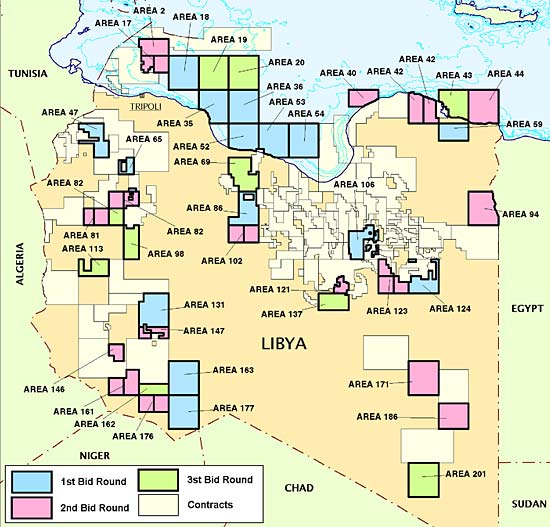
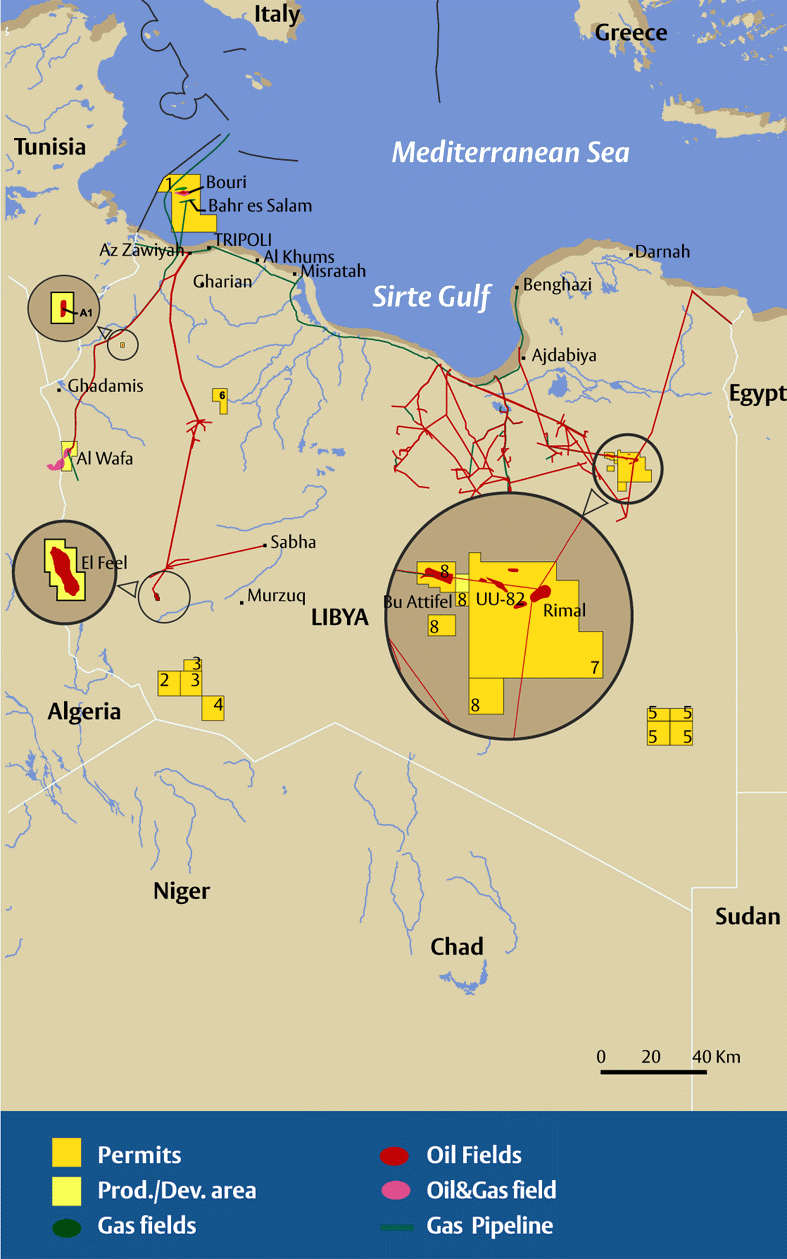
“Operation Libya” and the Battle for Oil: Redrawing the Map of Africa
The US and allied air strikes on Libya will have far reaching geopolitical and economic implications. Libya is the among the world’s largest oil economies with near 3.5 percent of global oil reserves, twice that of the United States. What’s going here? As Professor Michel Chossudovsky writes in his article “Operation Libya” and the Battle for Oil: Redrawing the Map of Africa.” there is no such thing as a just war. This is part of US imperialism as drafted in the 2000 Report of the Project of the New American Century entitled “Rebuilding Americas’ Defenses.” One of the main components of this military agenda is: to “Fight and decisively win in multiple, simultaneous theater wars”. Libya counts as the fourth theater of war along with Palestine, Afghanistan, Iraq. In all of this the mainstream media has used a massive disinformation in justifying this military agenda.
Professor Michel Chossudovsky:
- This is not a humanitarian intervention. It is a carefully planned military operation. This was on the drawing board of the Pentagon, well before the protest movements in Egypt.
- It is a war theater, and should be viewed in the broader context of the war theater, namely Iraq, Afghanistan and Palestine. It opens up a new area of militarization in North Africa. It has devastating consequences and is part of a global war.
- The object of coming to the rescue of civilians by bombing with cruise missiles is an absurd proposition. They’re bombing civilian infrastructure. The same agenda as the previous war theaters, they have a list of targets and go ahead and bomb. This whole notion of responsibility to protect is nonsense.
- They’re getting away with it because the media is lying through their teeth.
- Clearly there are Al-Qaeda elements that are supported by the CIA. Two years ago, the Gaddafi government made a deal with the CIA. We know that Al-Qaeda is an intelligence asset. It can be used precisely to create these conditions of insurrection as occurred in Bosnia and in Kosovo. We have to investigate a little more, who is behind the insurgency. The insurgency is not there to win a civil war, the insurgency is there to create a pretext for an intervention.
- I suspect this opposition is heavily divided in any event. Obama has ordered drone attacks in Pakistan.
- The Chinese have sizable interests in Libya. This is also directed against France and Italy, its France and Belgium that are being shoved out of Central Africa.
- Libya borders on Niger, its the entry into central Africa. Niger is important because it has large reserves of Uranium, which is in the hands of a French conglomerate.
- The conquest of Libya is the battle for oil, the same logic as Iraq.
- I estimated that Muslim countries have about 65-75 percent of global oil reserves. That is why we’re demonizing Muslims, they happen to inhabit.
- Bahrain and Yemen peaceful protesters getting hit with nerve gas.
Guest – Professor Michel Chossudovsky, director of Global Research.ca , Center for Research on Globalization. An independent research and media organization based in Montreal, Quebec, Canada.
————-
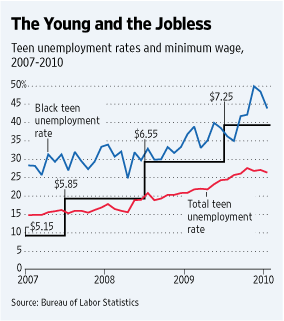
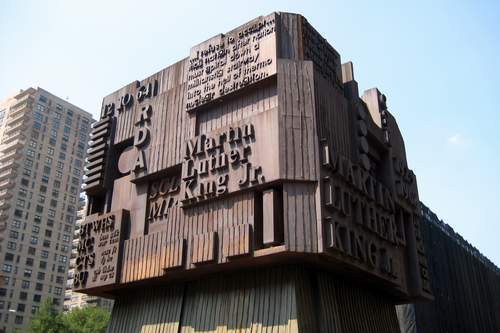
Community Service Society Report: Black Youth Unemployment
Unemployment in a jobless economic recovery has hit young African American men the hardest according to a recent report by the Community Service Society. PDF The highest unemployment rate in 2009 was among men 16-24 years of age—their overall unemployment rate hit 24.6 percent during the recession. Breaking it down by race, young black men had the highest unemployment rate in this group at 33.5 percent. While only one in four black men ages 16-24 have a job in the city, that figure drops to an astounding one in ten for young black men without a high school diploma.
“The recession has created a landscape of the unemployed and underemployed with particular catastrophic consequences for young African American men,” said David R. Jones, president and CEO of the Community Service Society of New York. “We have long known the struggles of the more than 200,000 youth in New York City who are out of work and out of school. Now young black men between 16 and 24 years have become the banner of hopelessness, particularly here in New York City.”
David R. Jones:
- Those who’ve never made the connection to work or those who’ve ceased trying. We’re talking hundreds of thousands of people involved here. African Americans constitute about a third of New Yorkers.
- I think people have to recognize we’re in something totally new.
- At least anecdotally, the Great Depression didn’t have this kind of impact on the black community that this recession is having on them.
- New York in the Great Depression was a segregated city, were working exclusively in black communities or trades that were circumscribed.
- You get pullman porters and restaurant work which were the reserves for African Americans before the civil rights movement hit. The homeless of New York were white on Bowery.
- While we’re seeing a better recovery, the number of long term unemployed is actually greater than New York than other municipalities.
- The trouble is you start to lose job skills, you lose hope, all sorts of with friends and employment start to disintegrate.
- We did a report on security guards and I went back to look at it. There are 63 thousand security guards in the city of New York and virtually none of them are unionized, their average wage was $10 an hour, no health insurance, no paid sick leave.
- New York has an usually high concentration of the working poor.
- We’ve been focusing all our efforts, in terms of how we deal with poverty on the issue of on this nexus between work and getting to a position where they can support themselves and their families.
- This is not limited to the South Bronx or Crown Heights, this is a national phenomenon.
- We know when we did our report on disconnected youth, we had 200 thousand disconnected youth in New York, there were nearly 5 million disconnected youth scattered across the country before the recession.
- We’re never going to go back, to the unemployment levels that we found unacceptable in New York of 5% again. That we’re going to back down from the 9.5 %.
- It was always the expectation, if you worked really hard, there’s was going to be a way, sort of a seat at the table here. New York has one of the highest recidivism rates, we’re doing a couple of things, we’re making it impossible to get work, once you’ve been incarcerated.
- We are going to get a group of young people who feel betrayed.
- I think this scapegoating that has taken on a really powerful voice, is partially because people want to blame someone for why they can’t get employment.
Guest – David Jones, President and Chief Executive Officer of the Community Service Society of New York , a nonpartisan, not-for-profit organization that promotes economic advancement and full civic participation for low-income New Yorkers.
Mr. Jones, an outspoken advocate for low-income New Yorkers, writes bi-weekly newspaper columns in the New York Amsterdam News and El Diario/La Prensa and a weekly blog on the Huffington Post website that serve to educate the public and government officials on issues of importance to minority and poor communities.
——————————-
Civil Liberties, Criminalizing Dissent, FBI Intrusion, Guantanamo, Habeas Corpus, Human Rights, Prison Industry, Supreme Court, Targeting Muslims, Torture, Truth to Power
Podcast: Play in new window | Download
Updates:
—
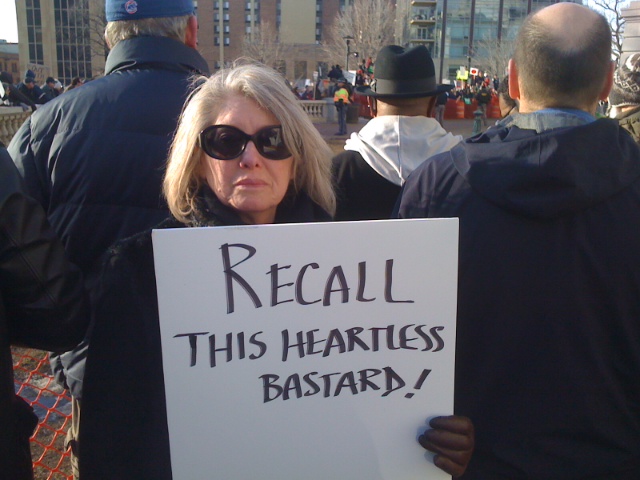

Wisconsin Labor Demonstrations Update
Organized labor is in the cross-hairs to be taken apart by the American elite. Last month, 10 thousand people continued a multi- day occupation of the Wisconsin State Capitol building while tens of thousands chanted outside. Meanwhile the country is gripped by the drama unfolding in Wisconsin and it has inspired unions in other states to move in solidarity. Among those states are Montana, Indiana, Ohio, Michigan, Pennsylvania and New Jersey. Listeners may remember that Wisconsin trade unions have already conceded to wage and benefit cuts. Now the state is voting to repeal Section 11170, the Public Employee Bargaining Chapter. Update: Wisconsin GOP Allows State To Fire Employees For Strikes, Walkouts
Attorney Lester Pines:
- Governor Walker is clearly a stocking horse for the far right wing of the Republican Party.
- I’m not surprised at his behavior, he behaved this way as a Milwaukee County executive.
- I told people he was going to try to repeal section 11170 which is the Public Employee Bargaining Chapter
- What’s at stake is an attempt by the governor and the legislature to strike at the heart of the Wisconsin tradition of organized labor.
- Public employee bargaining has been in Wisconsin for 50 years. This is an attempt to tear apart generations of how Wisconsin operated.
- On a federal level, this is an attempt to wipe away outside groups that democratic and progressive candidates.
- Wisconsin has a bi-annual budget. The legislation is part of budget repair bill. In that legislation is a bill to eliminate all collective bargaining for all municipal and school district employees as well as for state employees.
- There will be no bargaining if this bill passes. The only thing that can be bargained with is wages.
- The bill also imposes a cap on wages. These are designed to essentially make it impossible for public employee unions to function in any meaningful way.
- Scott Walker didn’t talk about what he would actually do.
- If we look at the mass demonstrations in Madison. These are the biggest demonstrations I’ve ever seen here.
- Impeachment is impossible because Republicans control the legislature and Senate, however he can be recalled.
- The Democrats can’t be arrested in a criminal sense,
- Governor Scott Walker has reignited the progressive movement in Wisconsin.
- Until you get these Republicans out of office they’re going to do a lot of damage. They’re nihilists. They care nothing for public services. They care only for what their corporate puppeteers want them to do.
- It looks like this whole anti-public union movement was actually planned out amongst all these new governors.
Guest – Labor attorney Lester Pines, in practice since 1975, he leads the Litigation area, concentrating in civil trials, criminal defense, labor & employment, and business. A Fellow in the American College of Trial Lawyers, Mr. Pines is a highly respected civil and criminal litigator who has appeared in courts throughout Wisconsin and litigated federal matters in Wisconsin, Illinois, Iowa, Ohio and New York.
————————–
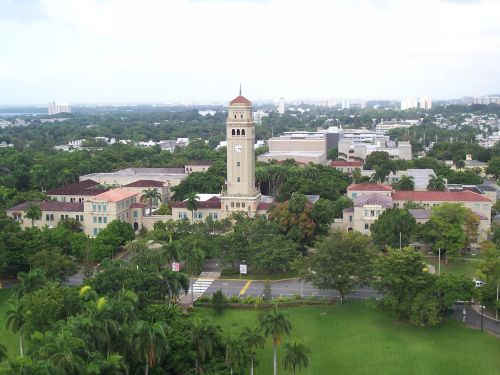

Human Rights Crisis Continues In Puerto Rico
More than a year ago nearly 100 thousand people took to the streets of San Juan, Puerto Rico to protest the lay off of about 17 thousand public employees. The demonstration shut down all state-owned enterprises including the island’s schools and colleges. Two days before that strike the governor passed a bill aimed at dismantling the Bar Association. Protesters were warned that if they stopped commerce, particularly the docks and airports, that action would be sanctionable to federal law. Now, as human rights violations continue, as students and faculty demonstrate against dismantling of progressive curriculum and tuition hikes. ACLU of Puerto Rico, “Human Rights Crisis in Puerto Rico: First Amendment Under Siege.” Law and Disorder Interview with Judy Berkan October 2009
Attorney Judy Berkan:
- Wholesale attack on institutions of Puerto Rican society where any dissent could be lodged.
- The Puerto Rican Bar Association, a real forum for those without a voice. Attacks have come to the Bar Association, elimination of mandatory Bar membership and imposed draconian restrictions upon the Bar Association. They took away a great deal of our funding.
- The president of the Puerto Rican Bar Association was jailed for speaking out against a lawsuit that could take away life insurance from poor lawyers.
- There’s a one month prohibition on leafleting and expression in the University of Puerto Rico.
- The closing of the legislative chambers. Right now there is a US Department of Justice investigation and talk of a trusteeship of the police department here.
- The use of the tactical operations of the police to repress dissent has been intensified.
- All of our public spaces are being closed off to legitimate dissent, while people engaged in peaceful dissent are being attacked.
- Austerity: Part of the remedy of the economic crisis there was an increase in tuition of 800.00. But much more at stake.
- More than that there is question of the vision the University of Puerto Rico will take in the future.
- The emphasis appears to be on privatization as it is throughout the government. We been suffering these programs since 2009.
- We were the guinea pigs. There’s more violence here, if we occupied the state house here, we would’ve been met with pepper spray, gas and beatings as we were when we attempted to demonstrate outside the state house last June.
- The economic programs are really the model that’s being used by Republican governors in the US
- The University situation is really wallowing in the wind without a real solution.
- The Bar Association and their presence is very crucial to public debate in Puerto Rico.
- I think people are getting tired, we do have 2 more years left of this administration.
- The police department is still in the hands of a former FBI agent who has openly encouraged violence against protesters. We have a raging crime rate.
- What’s distressing for all of us here who care about these matters is the media black out in the United States.
- Are we training people to be managers at McDonald’s or are we training people to think about the future of Puerto Rico?
Guest – Attorney Judith Berkan, is a partner in the San Juan law firm of Berkan/Mendez. She specializes in government misconduct litigation and employment discrimination cases. Berkan worked as an attorney in New Haven, Connecticut before going to Puerto Rico as the staff attorney for the Puerto Rico Legal Project of the National Lawyers Guild, now the Puerto Rico Civil Rights Institute. For twenty-seven years, she has been teaching, primarily in the Constitutional Law area, at the Inter American University Law School in San Juan, Puerto Rico.
A frequent speaker and author of many articles on civil rights issues, she was the President of the Human Rights Commission of the Puerto Rico Bar Association in the mid-1990?s and a member of the Commonwealth Supreme Court’s task force on gender discrimination.
————————–

Left Forum 2011
The 2011 Left Forum convenes this Spring, March the 18 to the 20th. This is the largest annual conference of a broad spectrum of left and progressive intellectuals, activists, academics, organizations and the interested public. Conference participants come together to engage a wide range of critical perspectives on the world, to discuss differences, commonalities, and alternatives to current predicaments, and to share ideas for understanding and transforming the world.
Guest – Stanley Aronowitz Distinguished Professor of Sociology at CUNY Graduate Center, where he is Director of The Center for the Study of Culture, Technology and Work. He has taught at Staten Island Community College, University of California-Irvine, University of Paris, Columbia University, and University of Wisconsin.
——————————————————————————————–
Civil Liberties, Criminalizing Dissent, FBI Intrusion, Gaza, Human Rights, Surveillance, Targeting Muslims
Podcast: Play in new window | Download
Updates:
—-
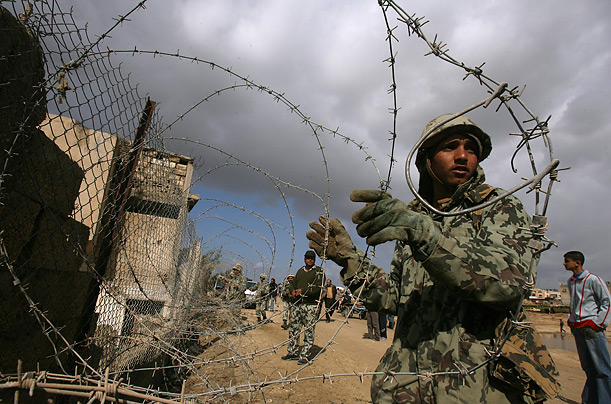
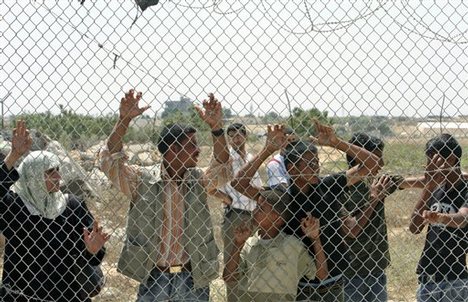
Middle East Protests – Israel / Palestine
Uprisings have continued to sweep through the middle east from Tunisia, Egypt, Libya, Bahrain, Yemen, Iran, Iraq and China. Economic hardships and desperate living conditions are partly the cause for some of the mass protests. In one article describing the Wisconsin protests, the journalist wrote, there were many voices this last month that raised the cry, “We are all Egyptians!”
Governments are said to be scrambling to squelch popular dissent. How will these protests begin to reshape countries in the middle east and and what government structures are standing by to replace decadent tyrannies and corrupt monarchies? How are Palestinians in Gaza and the West Bank responding to the massive dissent in nearby Arab countries?
Ali Abunimah:
- The events over the past weeks have been historic and we still don’t know how they’re all going to play out.
- The aspirations of Tunisians, Egyptians, Libyans, Jordanians, Palestinians are very clear.
- What remains to be seen is if they succeed in completing the revolutions. There is a strong counter-revolutionary push, not just from old regime elements but also from the United States.
- The mass uprising was sudden, but its important to know that there were Egyptian activists risking their lives for many many years to lay the ground for the uprising.
- The upper echelons of the Army are fully implicated in the old regime.
- You have a parade of Americans going to Egypt trying to minimize any shift in the region away from the Israeli-American axis and more into an independent orbit.
- The only guarantee is the continued mobilization of Egyptian people, of Egyptian workers.
- One of the myths in the American media is that this uprising is entirely about internal domestic issues.
- The Rafah crossing into Palestine needs to be open permanently, the situation at the border normalized.
- Egypt’s revolution and Israel: “Bad for the Jews” Ilan Pappe, The Electronic Intifada, 14 February 2011
- The view from Israel is that if they indeed succeed, the Tunisian and Egyptian revolutions are very bad. They make the Israeli occupation and apartheid policies in Palestine look like the acts of a typical “Arab” regime.
- The war in Gaza probably could not have been carried out without Egyptian complicity.
- In Palestine, the complete death of the peace process. The Palestine Papers – revealed by Al Jazeera.
- You can’t have functioning democracy and normal politics under Israel’s occupation.
- Your rights are not given to you from above, you have to fight for them.
Guest – Ali Abunimah, a Palestinian American journalist and author of One Country, A Bold Proposal to End the Israeli-Palestinian Impasse and a co-founder of The Electronic Intifada, a not-for-profit, independent online publication about the Israeli-Palestinian Conflict. Born in Washington D.C., he spent his early years in the United Kingdom and Belgium before returning to the United States to attend college.
—–
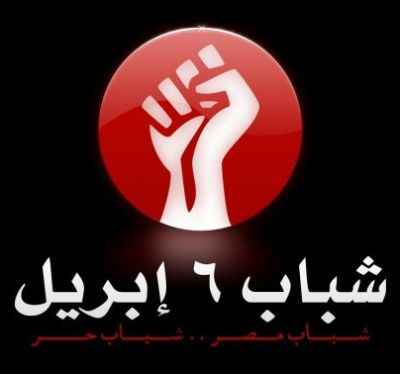
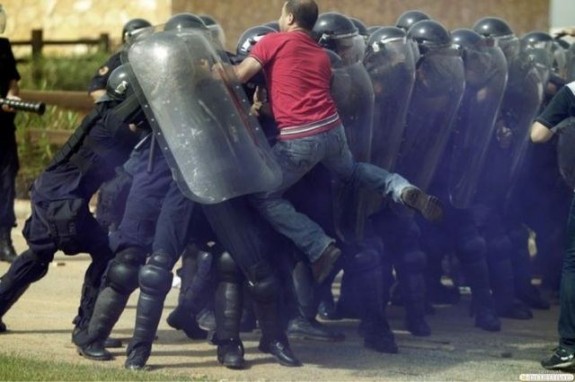
Cracks In The Neo-Liberal Empire
Political unrest in North Africa continue to ripple through the Middle East with some of the biggest anti-government demonstration yet in Bahrain. Meanwhile, the protests in Libya have turned deadly as the regime’s military has killed hundreds of demonstrators. New York Professor of Middle Eastern and Islamic Studies and History Zachary Lockman joins us with an analysis on the mass protests. In Egypt, Lockman says the old political parties in Egypt have no credibility.
Professor Zachary Lockman:
- Egypt: There were huge labor strikes going back to 2008. One of the groups that launched on January 25, called itself the April 6 youth movement – called itself that because there was supposed to be a big general strike of textile workers in 2008.
- The tremendous demand from Egyptians which help fuel the uprising, for some kind of change to the neo-liberal economic policies that Mubarak regime implemented 20 years ago.
- Egypt back in the 50s and 60s under the Nassir government carried through a series of social reforms.
- The largest estates held by the largest land owners were broken up, and millions of landless peasants even if they didn’t get land, they could farm some land and have reasonable security.
- Those kinds of things were rolled back in the 1990s under pressure from the IMF and the World Bank and with the approval of US government.
- Which means these farmers were kicked off the land in large number and ended up having to move to the cities in search of work for meager wages.
- Much of the public sector was privatized at fire sale prices to cronies of Mubarak.
- This is an opportunity when millions of Egyptian workers see an opportunity to create their own independent trade union movement. One doesn’t want to downplay the heroism of the young people who took to the streets on January 25.
- Mubarak was told to go by the generals who were told to preserve as much of the regime as possible in the face of this popular uprising. The generals now running Egypt are products of the Mubarak regime. The danger is that we’ll have the Mubarak regime without Mubarak.
- There is a new independent federation trade union being established in different industries. (Egypt)
- If there is something that approaches a more representative, democratic government, that government will be less likely to take orders from Washington in the way that Mubarak was very happy to.
- We’ve been waiting for something like this for decades, and in Egypt’s case for 30 years.
- It opens up dramatic new possibilities on a world scale. That boogieman of Islamic threat used to justify autocratic regimes which has been used across the region, is still there but as we’ve seen in Egypt and elsewhere, it’s time to put it aside.
- Since the 1970s, Saudi Arabia which has been on the defensive of more nationalist Pan Arab forces asserted it’s influence to buy friends and intimidate enemies and has been the bulwark of this conservative autocratic origin in the region.
Guest – Professor Zachary Lockman, New York Professor of Middle Eastern and Islamic Studies and History. He is the author of many books including Contending Visions of the Middle East: The History and Politics of Orientalism and “Explorations in the Field: Lost Voices and Emerging Practices in Egypt, 1882-1914.”Background: My main research and teaching field is the socioeconomic, cultural and political history of the modern Middle East, particularly the Mashriq. Under the influence of the “new social history” and “history from below” movements of the 1960s and 1970s, I did my doctoral dissertation on the emergence and evolution of a working class and labor movement in Egypt from the late nineteenth century until the Second World War; it was published in 1987 in a book co-authored with Joel Beinin. Harvard University, Ph. D., 1983.
———————————————————




















